
Human-wildlife conflict (HWC), an often-used terminology in conservation science, primarily connotes interactions between humans and wildlife, where the impact is invariably harmful. The term “conflict” has gained prevalence and momentum in recent decades; however, the relationship between humans and wildlife is deeply rooted in our civilisation. HWC has become a significant topic for research, policy and talk for conservationists, naturalists, managers, and policymakers. The nature of interactions has changed with time due to many factors. Various scientists and naturalists have provided definitions for HWC based on the concept that the interactions between humans and wildlife can result in negative consequences, including the loss of property, livelihoods, and human lives.
The HWC is a modern-day global conservation challenge with regional traits. To understand the present HWC scenario in the landscape, we need to dig into the history of the terai and its unique landscape dynamics. TeraiBhabar landscape is spread across the southern foothills of the Himalayas, with the western and eastern limits ending in India with parts of Nepal and Bhutan interspersed in between comprising tropical and subtropical moist broadleaf forests. The Terai forests support high biodiversity with a complex mosaic of micro-habitat types that add to its rich biodiversity. The area is characterised by tall grasses, dense evergreen trees, and numerous wetland habitats that provide a home to wildlife, including tigers, sloth bears, rhinoceros, elephants, and leopards. The area is also prone to high levels of HWC.
هذه القصة مأخوذة من طبعة SAEVUS NOVEMBER 23 MARCH 24 من Saevus.
ابدأ النسخة التجريبية المجانية من Magzter GOLD لمدة 7 أيام للوصول إلى آلاف القصص المتميزة المنسقة وأكثر من 9,000 مجلة وصحيفة.
بالفعل مشترك ? تسجيل الدخول
هذه القصة مأخوذة من طبعة SAEVUS NOVEMBER 23 MARCH 24 من Saevus.
ابدأ النسخة التجريبية المجانية من Magzter GOLD لمدة 7 أيام للوصول إلى آلاف القصص المتميزة المنسقة وأكثر من 9,000 مجلة وصحيفة.
بالفعل مشترك? تسجيل الدخول
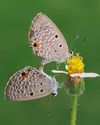
Frames from the WILD
A few amazing shots from a horde of incredible ones!
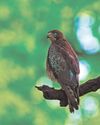
WAKE UP!
A frightening thought a world without wildlife, mornings without birdsong, and all that we take for granted! We must realise the dangers threatening the beauteous green world and its inhabitants around us!

Dolphin DILEMMA!
A crucial article to highlight the significance, and plight of Our riverine friends.
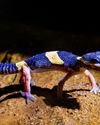
Gecko Quest!
The authors take us on the trail of a gecko from West Bengal, through the hills of the Bankura district.
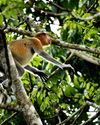
Endangered EXOTICA!
The author takes us on an exotic ride into the forests of Malaysia, allowing us glimpses of the beauties of its wildlife!
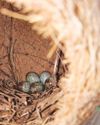
Mellifluous Magpie!
Immerse yourselves in the world of the musical and glorious Magpie Robin! The authors help acquaint us with this beautiful bird.
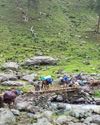
Think Different!
The author brings to us the very real concern for the horses employed around pilgrimage sites in India.
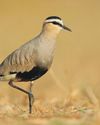
Take Heed!
The authors make a case for the conservation of the rare and lesser-known Sociable Lapwing.
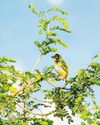
Close Encounters!
The author introduces us to two amazing yet very different bird species, showing us the diversity of our ecosystems,
